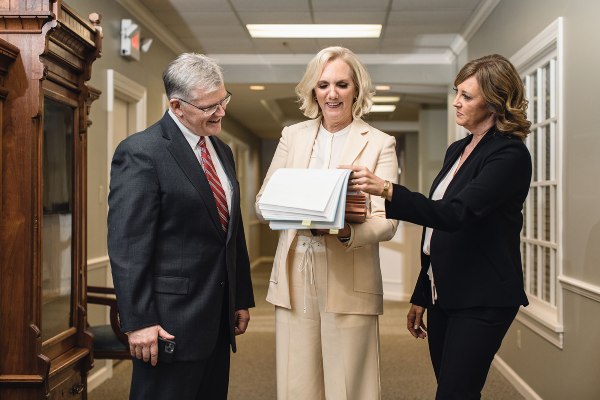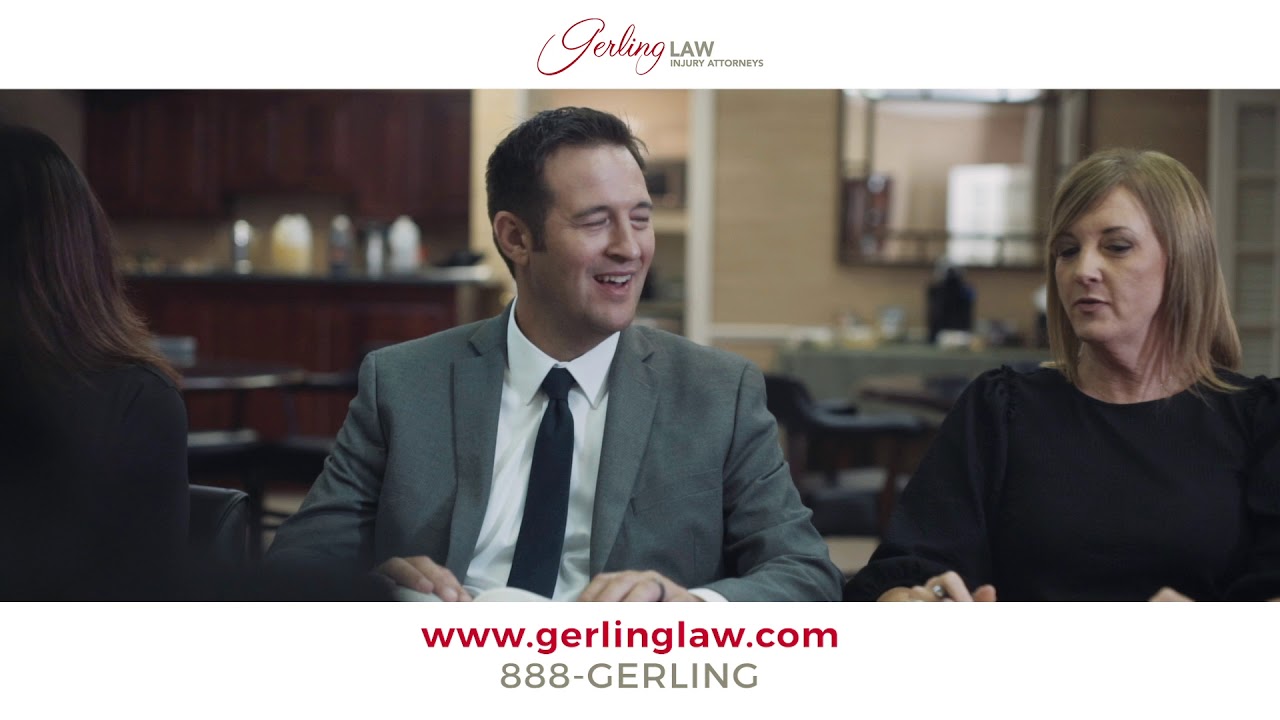
Personal Injury Attorneys in Indianapolis, IN
If you or a family member were injured due to someone else’s negligence, you might be under a lot of stress. You are trying to heal from your injuries, keeping up with medical appointments, losing time from work, and possibly struggling financially.
When someone else is responsible for your injuries, you have the legal right to pursue a claim for compensation. To learn more, contact the Indianapolis personal injury attorneys at Gerling Law today.
Understandably, most injured victims aren’t familiar with how the claims process works. That’s why you need a legal advocate who will look out for you and protect your rights. Be wary of the other party’s insurance adjuster. Despite what they tell you, they are not on your side.
Their loyalty is to their insured, and they are looking for ways to save money whenever possible. They may try to get you to give a recorded statement or settle for an amount far less than your claim is worth. Do not let them pressure you into signing anything without first speaking with one of the lawyers at Gerling Law.
Our Indianapolis personal injury law firm has over 50 years of experience, and we understand the nuances of personal injury claims and Indiana laws.
Contact us online or call (888) 437-5464 today for a free consultation.
Types of Indianapolis Personal Injury Cases We Handle
Our personal injury lawyers in Indianapolis have the experience and skills you need for any injury claim. Some of the most common types of cases we typically handle include:
- Automobile accidents: Auto accidents may involve another car, truck, motorcycle, pedestrian, bicycle, bus, train, and more.
- Severe and catastrophic injuries: Brain injuries, spinal cord injuries, and burn injuries can leave victims with permanent damage.
- Animal bites: When a dog or other animals bites you, you could have a claim for damages.
- Product liability: These are cases where a defective product caused your injuries, which could include medical equipment, household products, dangerous drugs, and more.
- Construction site accidents: Injuries at construction sites can occur from explosions, dangerous equipment, hazards, electrocutions, fires, falling from heights, etc.
- Medical malpractice: This includes birth injuries such as cerebral palsy and other acts of medical negligence.
- Premises liability: Slip and falls are one of the most common types of premises liability cases, but negligent security, swimming pool accidents, and more all fall under this specialty area of personal injury law.
- Nursing home abuse and neglect: Nursing home abuse and neglect are rampant problems all across the country, in some cases even in nursing homes that have an excellent record.
- Wrongful death: When someone passes away from their injuries caused by another person’s intentional actions, recklessness, or negligence, surviving family members may have a claim for wrongful death.
If you don’t see your type of claim listed here, don’t despair. We handle other types of personal injury matters as well. Schedule a no-obligation consultation with our office to discuss your specific circumstances. Our experienced Indianapolis injury attorneys can then tell you what the best course of legal action is.
What Is Personal Injury Law?
Personal injury law provides a method of financial recovery for victims who are harmed by someone else’s actions. Sometimes the act was intentional; other times, it was careless or reckless. A wide variety of scenarios fall under personal injury law. If someone else caused your injuries, speak with one of our Indianapolis personal injury lawyers who can help you pursue a claim for damages. The term damages refers to your losses, such as medical expenses, time off work, your pain and suffering, etc.
If the injured victim dies, specific family members may be able to bring a wrongful death claim. Wrongful death claims are different from other personal injury claims. The damages that family members seek in a wrongful death claim are for their own losses.
Knowledgeable, professional, and easy to talk with. Gerling Law Injury Attorneys provide a truly exemplary example of a metropolitan law firm who still cares for the welfare of the little guy who needs great representation!- Tresa H.
Proving Liability in an Indianapolis Personal Injury Matter
Before you can successfully recover compensation in a personal injury claim, you must prove liability against the responsible parties. Indiana is a modified comparative negligence state. What that means is you could be entitled to collect compensation provided you are not more than 50% at fault. This law is known as the 51% fault system. You must be less than 51% at fault to recover any compensation.
Your own percentage of fault will reduce any compensation you are awarded. For example, if you are 20% at fault in an accident, you could recover 80% of your damages. If you are 60% at fault, you will receive nothing.Insurance companies have an incentive to place additional blame on you in a personal injury case. It reduces their potential exposure and possible payout. That is why having a legal advocate on your side is so important. Our personal injury attorneys in Indianapolis will be there for you every step of the claims process. We will not let the at-fault party’s insurance adjuster unfairly reduce their financial responsibility to make you whole again.
Types of Recoverable Damages in an Indianapolis Personal Injury Claim
Damages available in a personal injury case will vary based on the type of case, the severity of your injuries, and the percentage of liability. In general, you have two main categories of damages. The first is economic, and the second is non-economic.
Economic damages are those that can be calculated, such as medical expenses, your missed time from work, property damage, and more. There is typically some financial proof that supports the loss.
With non-economic damages, the value is more subjective and therefore harder to calculate. They can include pain and suffering, emotional distress, and more.
In some personal injury cases, there may be a punitive damages award. Punitive damages are reserved for cases involving intentional actions or gross negligence, such as someone driving drunk.
Statute of Limitations for Personal Injury Claims in Indiana
When you are pursuing an Indianapolis personal injury claim, there is a legal deadline that the state of Indiana enforces, called the statute of limitations. You must file a lawsuit within the required deadline, or the court will almost assuredly dismiss your claim. In most cases, you have two years from the date of the incident to file a lawsuit.
The statute of limitations may be different depending on the type of case. That is one reason why retaining an Indianapolis personal injury attorney is crucial. Two years might seem like a long time, but it’s not. It’s easy to inadvertently miss the deadline, especially if you are in the middle of negotiations with the insurance company.
Contact the Indianapolis Personal Injury Lawyers at Gerling Law Today
Don’t risk your potential settlement by leaving your case to chance.
Many types of personal injury cases can be very complex, especially those involving defective products, medical malpractice, and premises liability. You need an experienced Indianapolis personal injury law firm with the skills and financial resources to take your case to trial if necessary.
Let us fight for the compensation you deserve. Contact Gerling Law Injury Attorneys today to schedule a free consultation to learn more. With over 50 years of experience, we are not afraid to take on any case, no matter how complicated.
Send us an online message or call (888) 437-5464 today for a free, no-obligation consultation.
